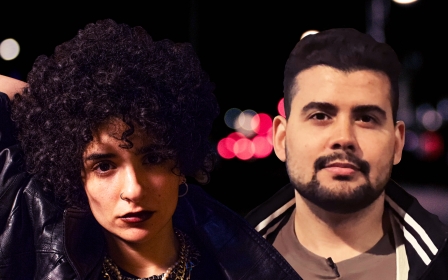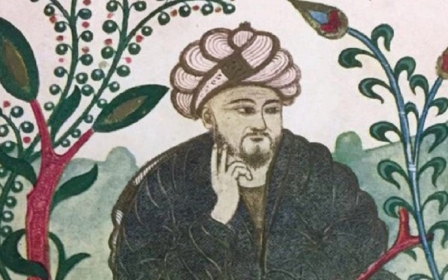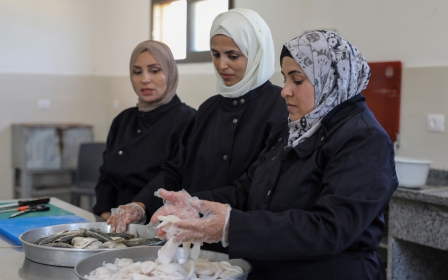Sinead O'Connor, iconic Irish singer who converted to Islam, dies aged 56
Famed Irish singer Sinead O'Connor died on Wednesday, aged 56.
The cause of her death was not provided, but in a statement to the press, her family said they were “devastated and have requested privacy at this very difficult time”.
O’Connor was born in Dublin, Ireland. Her death comes one year after her 17-year-old son died of an apparent suicide.
In 2018, O'Connor converted to Islam.
She burst into global stardom in 1990 with her cover of Prince's Nothing Compares 2 U, which topped the Billboard Hot 100 charts that year.
New MEE newsletter: Jerusalem Dispatch
Sign up to get the latest insights and analysis on Israel-Palestine, alongside Turkey Unpacked and other MEE newsletters
While she always made headlines with her music, she also made headlines through her activism.
In 1992, she tore up a photo of the pope and said: “Fight the real enemy” while performing at the American TV show, Saturday Night Live, saying it was in protest against child sexual abuse in the Catholic Church.
The move was criticised by Madonna and Frank Sinatra and many others in the entertainment industry.
In 2018, O’Connor converted to Islam and changed her name to Shuhada Sadaqat.
“This is to announce that I am proud to have become a Muslim,” she wrote on Twitter in October 2018. “This is the natural conclusion of any intelligent theologian’s journey. All scripture study leads to Islam. Which makes all other scriptures redundant.”
In an interview with Ryan Tubridy on Ireland's The Late Late Show in 2019, she discussed her journey to Islam.
"I started studying scriptures from different religions, trying to find the 'truth' about God… I never thought I would join a religion, but I left Islam until last because I had so much prejudice about Islam,” she said.
"But then when I started reading, and I read just chapter two alone of the Quran, and I realised, 'Oh my God, I am home',” she said. "I had been a Muslim all my life and didn't realise it.”
When she was asked about wearing the hijab, she said it was something she did not wear all the time.
"There are no rules about it. I would associate myself with the Sufi element of Islam, I am not at my age required to wear the hijab... I wear it because I like it."
Middle East Eye delivers independent and unrivalled coverage and analysis of the Middle East, North Africa and beyond. To learn more about republishing this content and the associated fees, please fill out this form. More about MEE can be found here.




